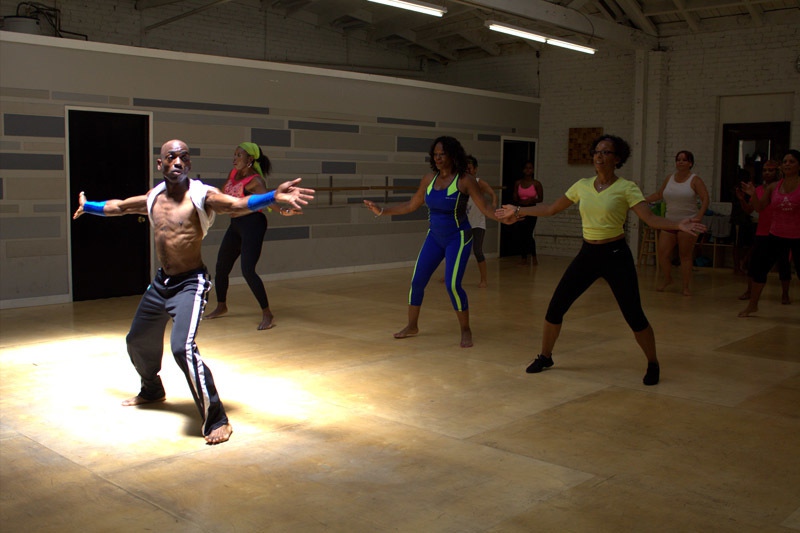The Downtown Oakland Specific Plan Team had the pleasure of facilitating a series of interviews with Oaklanders about their visions for an equitable downtown Oakland.
Thank you to Theo of SambaFunk! for sharing his time and brilliance with us! Watch the video or read the transcript below to hear Theo's thoughts.
What does Oakland mean to you?
Oakland means home. Oakland means culture. Oakland means determination. Oakland means solidarity.
What are your thoughts on what is going on in Downtown Oakland right now?
The development if you’re talking about development they’ve been talking about that since I was a child and that’s been decades ago. So to see the downtown actually develop is really interesting and good I think it brings a lot of jobs and opportunity to some people in Oakland. Also, there’s a tendency to… for disenfranchised folks to be locked out of the process and not know how to become involved in the process so when I see the development and I see the changes in Oakland, part of it I embrace, but part of it I’m very skeptical of because the history has always been to not be very inclusive with development and not to… the money doesn’t expand to the neighborhoods so that’s what I would be concerned about.
What is your vision of the future of downtown? And how could downtown better serve you?
The development of Downtown should stay true to what it was pitched as, as an arts district. And so far it’s not much of an arts district… it’s a booze district. It’s a place where people can get drinks and be inebriated and partially walk around like it’s New Orleans or spring break somewhere in Daytona Beach and feel good about it and now a certain class of people has access to some social services, and I don’t mean social services as in community services, I mean just being able to be social and now you can go buy a drink and get a taco, or shawarma or something downtown and stay out later than you normally would be later to stay out. So I think it needs to go back to the idea of developing into an arts district and focus on elevating artists and creating spaces for public art is not only welcomed, but programmed and promoted.
When you think of “Equity in Oakland,” what comes to mind?
Well equity in and of itself speaks directly to being equal, right. So we know that our history here in Oakland has not been one of equity. So there’s what comes to mind when I think of equity, I think of being able to catch up before you can even become equal. So when you’re talking about culturally and artistically and economically and social-economically, there’s a lot of catch-up that needs to happen, even if you look at the development downtown on who’s benefitting. A lot of times it’s not even businesses that are from Oakland, it’s businesses from San Francisco and Alameda County that are getting contract and getting services and even knowing the process of how to get these contracts and services. So when I think about equity, I think that there has to be greater outreach into communities that have not been at the table. Being a Black American man, I think about equity as inclusion of black men. But, rarely are Black men even in the equation. You can look at a lot of the board of directors and the staff personnel of these agencies and organizations, foundations, that are coming into work on equity and present equity and [laughter] bring diversity and all these different types of prosperity, different forms of prosperity in the Oakland, specifically, downtown, and Black men are very rarely included in that so when I think of equity I think of being able to include Black men, not just Black people, but Black men and being able to reach out to communities that have been locked out of the process.
What changes would you suggest to improve social, racial, and economic equity in downtown Oakland?
I would definitely say that we need to be real with ourselves. And we need to be real with our communities. If we say that we want to have community input then how do, we can’t get nervous when we see scraper bikes coming through downtown and the 30, 40, 50, 60, 70 deep. I thought we wanted cultural diversity. I thought we wanted equity. I thought we wanted inclusion, so now we are including that because this is Oakland, right, so we’re talking about including basically East Oakland and deep East Oakland is involved in that and West Oakland. It’s not just North Oakland and expanding to Temescal and involving Rockridge and what’s happening in the heels and of course Lake Merritt area. No, it’s all of Oakland so I think that just us being honest as individuals and honest as an Oakland community about what it is we want and the future that we see and be real about it.
